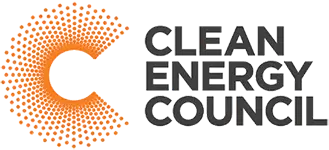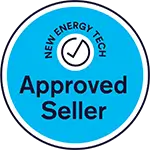How We Determined the Best Solar Inverters in Australia
Picking the best solar inverters for homes and businesses in Australia means looking at a few important things. Our ranking is based on:
- Efficiency: How well it turns sunlight into usable energy. Higher is better.
- Reliability & Warranty: It should last long and come with a good warranty.
- Features: Smart monitoring, works with batteries, and has safety features.
- Price & Value: Good performance without being too expensive.
- Reviews & Opinions: What customers and experts say about how it works in real life.
Inverter Specifications
| Feature | Model 1 (e.g., 1 kW) | Model 2 (e.g., 3 kW) | Model 3 (e.g., 5 kW) |
|---|---|---|---|
| Capacity | 1 kW | 3 kW | 5 kW |
| Input Voltage Range | 100-300 V | 150-400 V | 150-450 V |
| Output Voltage | 230 V AC | 230 V AC | 230 V AC |
| Efficiency | 95% | 97% | 98% |
| Operating Temp. | -10°C to 50°C | -10°C to 60°C | -10°C to 60°C |
| Weight | 10 kg | 15 kg | 20 kg |
Comparison of Different Solar Inverters
| Feature | Model 1 (Brand A) | Model 2 (Brand B) | Model 3 (Brand C) |
|---|---|---|---|
| Inverter Type | Grid-Tied | Off-Grid | Hybrid |
| Input Voltage | 150-400 V | 120-300 V | 200-400 V |
| Output Power | 1 kW | 2 kW | 5 kW |
| Warranty | 5 years | 7 years | 10 years |
| Price | $500 | $700 | $1000 |
| Certifications | ISO, CE | ISO, UL | ISO, CE, UL |
Energy Savings from Solar Inverters
| System Size (kW) | Daily Energy Production (kWh) | Monthly Energy Production (kWh) | Estimated Monthly Savings ($) | CO2 Reduction (kg) |
|---|---|---|---|---|
| 10 kW | 40 kWh | 1200 kWh | $150 | 900 kg |
| 20 kW | 80 kWh | 2400 kWh | $300 | 1800 kg |
| 30 kW | 120 kWh | 3600 kWh | $450 | 2700 kg |
| 40 kW | 160 kWh | 4800 kWh | $600 | 3600 kg |
| 100 kW | 400 kWh | 12000 kWh | $1500 | 9000 kg |
| 200 kW | 800 kWh | 24000 kWh | $3000 | 18000 kg |
Budget-Friendly Inverters
If you’re looking for affordable options, these inverters still work well:
1. Growatt MIN 5000TL-X
- Efficiency: 97.9%
- Key Features: Wi-Fi monitoring, small size
- Best For: Homeowners saving money
- Pros: Cheap, good efficiency, easy to install
- Cons: Missing some advanced features
2. Sungrow SG5K-D
- Efficiency: 98.1%
- Key Features: Works with batteries, good customer support
- Best For: People wanting a mix of price and quality
- Pros: Reliable, affordable, great efficiency
- Cons: Warranty isn’t as long as premium brands
Premium Reliable Inverters
These are top-quality inverters with strong warranties:
3. Fronius Primo 5.0-1
- Efficiency: 98.1%
- Key Features: Smart monitoring, very well-built
- Best For: Long-lasting performance
- Pros: High quality, strong warranty, very efficient
- Cons: Expensive
4. SMA Sunny Boy 5.0
- Efficiency: 97.5%
- Key Features: German-made, great support network
- Best For: Homes needing reliable, long-term use
- Pros: Lasts a long time, performs very well
- Cons: High upfront cost
High-Efficiency Inverters
For those who want the most energy from their solar panels, these inverters are for them:
5. SolarEdge HD-Wave SE5000H
- Efficiency: 99%
- Key Features: Works with power optimizers, high-performance
- Best For: Getting the most energy from your solar panels
- Pros: Best efficiency, advanced safety features
- Cons: Needs extra power optimizers
6. Enphase IQ7+ (Microinverter System)
- Efficiency: 97.5%
- Key Features: Each panel works independently
- Best For: Homes with shading problems
- Pros: Works well on shaded roofs
- Cons: Costs more because you need multiple units
Inverters With Advanced Technology and Features
If you want the latest tech, these inverters are great:
7. Huawei SUN2000-5KTL-L1
- Efficiency: 98.6%
- Key Features: AI safety features, ready for batteries
- Best For: Future-proofing your solar system
- Pros: Smart tech, excellent safety
- Cons: A bit more expensive
8. Delta H5A
- Efficiency: 97.5%
- Key Features: Handles high heat, compact design
- Best For: Hot Australian climates
- Pros: Durable, smart connectivity
- Cons: Less well-known than other brands
Inverters For Complex Roofs
If your roof has shading or multiple angles, these inverters are best:
9. Enphase IQ8 (Microinverter System)
- Efficiency: 97.6%
- Key Features: Can work without the grid
- Best For: Complex or shaded roofs
- Pros: Each panel works independently
- Cons: Higher installation cost
10. SolarEdge SE6000H
- Efficiency: 99%
- Key Features: Power optimizers, monitors each panel
- Best For: Homes with multiple roof sections
- Pros: Maximizes energy output
- Cons: Extra cost for optimizers
Limitations of Our Ranking
This list is a guide, but your choice may depend on your budget, preferences, and specific needs. Newer models might also come out that are better than these options. Always check for updates!
How Much Does an Inverter Cost?
- Budget Inverters: $800 – $1,500
- Mid-Range Inverters: $1,500 – $3,000
- Premium Inverters: $3,000 – $6,000
- Microinverters & Optimized Systems: $4,000+
What About Brands That Are Not on This Ranking?
There are other brands like GoodWe, ABB, and Solis. They might still be good for you. Always check reviews, efficiency, and warranties before buying.
Conclusion
Choosing the right solar inverter in Australia depends on your budget, how efficient you want it to be, and the features. Whether you want something cheap or high-end, there’s an inverter for you. Always talk to a solar expert before deciding.
FAQs
1. What is the best solar inverter brand in Australia?
Fronius, SMA, and SolarEdge are some of the best because they’re reliable and efficient.
2. How long do solar inverters last?
Most last 10-15 years, but high-quality ones can last up to 20 years if well-maintained.
3. Is it worth paying more for a premium inverter?
Yes, they are more efficient, better warranties, and save you money.
4. Can I upgrade my inverter later?
Yes, but it depends on whether it works with your current solar panels and system.
5. Do all inverters work with batteries?
No, only hybrid inverters or battery-ready models can integrate with a battery storage system.




